- Home
- D. H. Lawrence
England, My England Page 7
England, My England Read online
Page 7
'Yes,' he answered. 'Isabel?'
She saw nothing, and the sound of his voice seemed to touch her.
'Hello!' she answered cheerfully, straining her eyes to see him. He was still busy, attending to the horses near her, but she saw only darkness. It made her almost desperate.
'Won't you come in, dear?' she said.
'Yes, I'm coming. Just half a minute. Stand over - now! Trap's not come, has it?'
'Not yet,' said Isabel.
His voice was pleasant and ordinary, but it had a slight suggestion of the stable to her. She wished he would come away. Whilst he was so utterly invisible she was afraid of him.
'How's the time?' he asked.
'Not yet six,' she replied. She disliked to answer into the dark.
Presently he came very near to her, and she retreated out of doors.
'The weather blows in here,' he said, coming steadily forward, feeling for the doors. She shrank away. At last she could dimly see him.
'Bertie won't have much of a drive,' he said, as he closed the doors.
'He won't indeed!' said Isabel calmly, watching the dark shape at the door.
'Give me your arm, dear,' she said.
She pressed his arm close to her, as she went. But she longed to see him, to look at him. She was nervous. He walked erect, with face rather lifted, but with a curious tentative movement of his powerful, muscular legs. She could feel the clever, careful, strong contact of his feet with the earth, as she balanced against him. For a moment he was a tower of darkness to her, as if he rose out of the earth.
In the house-passage he wavered, and went cautiously, with a curious look of silence about him as he felt for the bench. Then he sat down heavily. He was a man with rather sloping shoulders, but with heavy limbs, powerful legs that seemed to know the earth. His head was small, usually carried high and light. As he bent down to unfasten his gaiters and boots he did not look blind. His hair was brown and crisp, his hands were large, reddish, intelligent, the veins stood out in the wrists; and his thighs and knees seemed massive. When he stood up his face and neck were surcharged with blood, the veins stood out on his temples. She did not look at his blindness.
Isabel was always glad when they had passed through the dividing door into their own regions of repose and beauty. She was a little afraid of him, out there in the animal grossness of the back. His bearing also changed, as he smelt the familiar, indefinable odour that pervaded his wife's surroundings, a delicate, refined scent, very faintly spicy. Perhaps it came from the pot-pourri bowls.
He stood at the foot of the stairs, arrested, listening. She watched him, and her heart sickened. He seemed to be listening to fate.
'He's not here yet,' he said. 'I'll go up and change.'
'Maurice,' she said, 'you're not wishing he wouldn't come, are you?'
'I couldn't quite say,' he answered. 'I feel myself rather on the qui vive.'
'I can see you are,' she answered. And she reached up and kissed his cheek. She saw his mouth relax into a slow smile.
'What are you laughing at?' she said roguishly.
'You consoling me,' he answered.
'Nay,' she answered. 'Why should I console you? You know we love each other - you know how married we are! What does anything else matter?'
'Nothing at all, my dear.'
He felt for her face, and touched it, smiling.
'You're all right, aren't you?' he asked, anxiously.
'I'm wonderfully all right, love,' she answered. 'It's you I am a little troubled about, at times.'
'Why me?' he said, touching her cheeks delicately with the tips of his fingers. The touch had an almost hypnotizing effect on her.
He went away upstairs. She saw him mount into the darkness, unseeing and unchanging. He did not know that the lamps on the upper corridor were unlighted. He went on into the darkness with unchanging step. She heard him in the bathroom.
Pervin moved about almost unconsciously in his familiar surroundings, dark though everything was. He seemed to know the presence of objects before he touched them. It was a pleasure to him to rock thus through a world of things, carried on the flood in a sort of blood-prescience. He did not think much or trouble much. So long as he kept this sheer immediacy of blood-contact with the substantial world he was happy, he wanted no intervention of visual consciousness. In this state there was a certain rich positivity, bordering sometimes on rapture. Life seemed to move in him like a tide lapping, and advancing, enveloping all things darkly. It was a pleasure to stretch forth the hand and meet the unseen object, clasp it, and possess it in pure contact. He did not try to remember, to visualize. He did not want to. The new way of consciousness substituted itself in him.
The rich suffusion of this state generally kept him happy, reaching its culmination in the consuming passion for his wife. But at times the flow would seem to be checked and thrown back. Then it would beat inside him like a tangled sea, and he was tortured in the shattered chaos of his own blood. He grew to dread this arrest, this throw-back, this chaos inside himself, when he seemed merely at the mercy of his own powerful and conflicting elements. How to get some measure of control or surety, this was the question. And when the question rose maddening in him, he would clench his fists as if he would compel the whole universe to submit to him. But it was in vain. He could not even compel himself.
Tonight, however, he was still serene, though little tremors of unreasonable exasperation ran through him. He had to handle the razor very carefully, as he shaved, for it was not at one with him, he was afraid of it. His hearing also was too much sharpened. He heard the woman lighting the lamps on the corridor, and attending to the fire in the visitor's room. And then, as he went to his room he heard the trap arrive. Then came Isabel's voice, lifted and calling, like a bell ringing:
'Is it you, Bertie? Have you come?'
And a man's voice answered out of the wind:
'Hello, Isabell There you are.'
'Have you had a miserable drive? I'm so sorry we couldn't send a closed carriage. I can't see you at all, you know.'
'I'm coming. No, I liked the drive - it was like Perthshire. Well, how are you? You're looking fit as ever, as far as I can see.'
'Oh, yes,' said Isabel. 'I'm wonderfully well. How are you? Rather thin,
I think - '
'Worked to death - everybody's old cry. But I'm all right, Ciss. How's
Pervin? - isn't he here?'
'Oh, yes, he's upstairs changing. Yes, he's awfully well. Take off your wet things; I'll send them to be dried.'
'And how are you both, in spirits? He doesn't fret?'
'No - no, not at all. No, on the contrary, really. We've been wonderfully happy, incredibly. It's more than I can understand - so wonderful: the nearness, and the peace - '
'Ah! Well, that's awfully good news - '
They moved away. Pervin heard no more. But a childish sense of desolation had come over him, as he heard their brisk voices. He seemed shut out - like a child that is left out. He was aimless and excluded, he did not know what to do with himself. The helpless desolation came over him. He fumbled nervously as he dressed himself, in a state almost of childishness. He disliked the Scotch accent in Bertie's speech, and the slight response it found on Isabel's tongue. He disliked the slight purr of complacency in the Scottish speech. He disliked intensely the glib way in which Isabel spoke of their happiness and nearness. It made him recoil. He was fretful and beside himself like a child, he had almost a childish nostalgia to be included in the life circle. And at the same time he was a man, dark and powerful and infuriated by his own weakness. By some fatal flaw, he could not be by himself, he had to depend on the support of another. And this very dependence enraged him. He hated Bertie Reid, and at the same time he knew the hatred was nonsense, he knew it was the outcome of his own weakness.
He went downstairs. Isabel was alone in the dining-room. She watched him enter, head erect, his feet tentative. He looked so strong-blooded and healthy, and, at the
same time, cancelled. Cancelled - that was the word that flew across her mind. Perhaps it was his scars suggested it.
'You heard Bertie come, Maurice?' she said.
'Yes - isn't he here?'
'He's in his room. He looks very thin and worn.'
'I suppose he works himself to death.'
A woman came in with a tray - and after a few minutes Bertie came down. He was a little dark man, with a very big forehead, thin, wispy hair, and sad, large eyes. His expression was inordinately sad - almost funny. He had odd, short legs.
Isabel watched him hesitate under the door, and glance nervously at her husband. Pervin heard him and turned.
'Here you are, now,' said Isabel. 'Come, let us eat.'
Bertie went across to Maurice.
'How are you, Pervin,' he said, as he advanced.
The blind man stuck his hand out into space, and Bertie took it.
'Very fit. Glad you've come,' said Maurice.
Isabel glanced at them, and glanced away, as if she could not bear to see them.
'Come,' she said. 'Come to table. Aren't you both awfully hungry? I am, tremendously.'
'I'm afraid you waited for me,' said Bertie, as they sat down.
Maurice had a curious monolithic way of sitting in a chair, erect and distant. Isabel's heart always beat when she caught sight of him thus.
'No,' she replied to Bertie. 'We're very little later than usual. We're having a sort of high tea, not dinner. Do you mind? It gives us such a nice long evening, uninterrupted.'
'I like it,' said Bertie.
Maurice was feeling, with curious little movements, almost like a cat kneading her bed, for his place, his knife and fork, his napkin. He was getting the whole geography of his cover into his consciousness. He sat erect and inscrutable, remote-seeming Bertie watched the static figure of the blind man, the delicate tactile discernment of the large, ruddy hands, and the curious mindless silence of the brow, above the scar. With difficulty he looked away, and without knowing what he did, picked up a little crystal bowl of violets from the table, and held them to his nose.
'They are sweet-scented,' he said. 'Where do they come from?'
'From the garden - under the windows,' said Isabel.
'So late in the year - and so fragrant! Do you remember the violets under
Aunt Bell's south wall?'
The two friends looked at each other and exchanged a smile, Isabel's eyes lighting up.
'Don't I?' she replied. 'Wasn't she queer!'
'A curious old girl,' laughed Bertie. 'There's a streak of freakishness in the family, Isabel.'
'Ah - but not in you and me, Bertie,' said Isabel. 'Give them to Maurice, will you?' she added, as Bertie was putting down the flowers. 'Have you smelled the violets, dear? Do! - they are so scented.'
Maurice held out his hand, and Bertie placed the tiny bowl against his large, warm-looking fingers. Maurice's hand closed over the thin white fingers of the barrister. Bertie carefully extricated himself. Then the two watched the blind man smelling the violets. He bent his head and seemed to be thinking. Isabel waited.
'Aren't they sweet, Maurice?' she said at last, anxiously.
'Very,' he said. And he held out the bowl. Bertie took it. Both he and
Isabel were a little afraid, and deeply disturbed.
The meal continued. Isabel and Bertie chatted spasmodically. The blind man was silent. He touched his food repeatedly, with quick, delicate touches of his knife-point, then cut irregular bits. He could not bear to be helped. Both Isabel and Bertie suffered: Isabel wondered why. She did not suffer when she was alone with Maurice. Bertie made her conscious of a strangeness.
After the meal the three drew their chairs to the fire, and sat down to talk. The decanters were put on a table near at hand. Isabel knocked the logs on the fire, and clouds of brilliant sparks went up the chimney. Bertie noticed a slight weariness in her bearing.
'You will be glad when your child comes now, Isabel?' he said.
She looked up to him with a quick wan smile.
'Yes, I shall be glad,' she answered. 'It begins to seem long. Yes, I shall be very glad. So will you, Maurice, won't you?' she added.
'Yes, I shall,' replied her husband.
'We are both looking forward so much to having it,' she said.
'Yes, of course,' said Bertie.
He was a bachelor, three or four years older than Isabel. He lived in beautiful rooms overlooking the river, guarded by a faithful Scottish man-servant. And he had his friends among the fair sex - not lovers, friends. So long as he could avoid any danger of courtship or marriage, he adored a few good women with constant and unfailing homage, and he was chivalrously fond of quite a number. But if they seemed to encroach on him, he withdrew and detested them.
Isabel knew him very well, knew his beautiful constancy, and kindness, also his incurable weakness, which made him unable ever to enter into close contact of any sort. He was ashamed of himself, because he could not marry, could not approach women physically. He wanted to do so. But he could not. At the centre of him he was afraid, helplessly and even brutally afraid. He had given up hope, had ceased to expect any more that he could escape his own weakness. Hence he was a brilliant and successful barrister, also littérateur of high repute, a rich man, and a great social success. At the centre he felt himself neuter, nothing.
Isabel knew him well. She despised him even while she admired him. She looked at his sad face, his little short legs, and felt contempt of him. She looked at his dark grey eyes, with their uncanny, almost childlike intuition, and she loved him. He understood amazingly - but she had no fear of his understanding. As a man she patronized him.
And she turned to the impassive, silent figure of her husband. He sat leaning back, with folded arms, and face a little uptilted. His knees were straight and massive. She sighed, picked up the poker, and again began to prod the fire, to rouse the clouds of soft, brilliant sparks.
'Isabel tells me,' Bertie began suddenly, 'that you have not suffered unbearably from the loss of sight.'
Maurice straightened himself to attend, but kept his arms folded.
'No,' he said, 'not unbearably. Now and again one struggles against it, you know. But there are compensations.'
'They say it is much worse to be stone deaf,' said Isabel.
'I believe it is,' said Bertie. 'Are there compensations?' he added, to
Maurice.
'Yes. You cease to bother about a great many things.' Again Maurice stretched his figure, stretched the strong muscles of his back, and leaned backwards, with uplifted face.
'And that is a relief,' said Bertie. 'But what is there in place of the bothering? What replaces the activity?'
There was a pause. At length the blind man replied, as out of a negligent, unattentive thinking:
'Oh, I don't know. There's a good deal when you're not active.'
'Is there?' said Bertie. 'What, exactly? It always seems to me that when there is no thought and no action, there is nothing.'
Again Maurice was slow in replying.
'There is something,' he replied. 'I couldn't tell you what it is.'
And the talk lapsed once more, Isabel and Bertie chatting gossip and reminiscence, the blind man silent.
At length Maurice rose restlessly, a big, obtrusive figure. He felt tight and hampered. He wanted to go away.
'Do you mind,' he said, 'if I go and speak to Wernham?'
'No - go along, dear,' said Isabel.
And he went out. A silence came over the two friends. At length Bertie said:
'Nevertheless, it is a great deprivation, Cissie.'
'It is, Bertie. I know it is.'
'Something lacking all the time,' said Bertie.
'Yes, I know. And yet - and yet - Maurice is right. There is something else, something there, which you never knew was there, and which you can't express.'
'What is there?' asked Bertie.
'I don't know - it's awfully hard to define it - but
something strong and immediate. There's something strange in Maurice's presence - indefinable - but I couldn't do without it. I agree that it seems to put one's mind to sleep. But when we're alone I miss nothing; it seems awfully rich, almost splendid, you know.'
'I'm afraid I don't follow,' said Bertie.
They talked desultorily. The wind blew loudly outside, rain chattered on the window-panes, making a sharp, drum-sound, because of the closed, mellow-golden shutters inside. The logs burned slowly, with hot, almost invisible small flames. Bertie seemed uneasy, there were dark circles round his eyes. Isabel, rich with her approaching maternity, leaned looking into the fire. Her hair curled in odd, loose strands, very pleasing to the man. But she had a curious feeling of old woe in her heart, old, timeless night-woe.
'I suppose we're all deficient somewhere,' said Bertie.
'I suppose so,' said Isabel wearily.
'Damned, sooner or later.'
'I don't know,' she said, rousing herself. 'I feel quite all right, you know. The child coming seems to make me indifferent to everything, just placid. I can't feel that there's anything to trouble about, you know.'
'A good thing, I should say,' he replied slowly.
'Well, there it is. I suppose it's just Nature. If only I felt I needn't trouble about Maurice, I should be perfectly content - '
'But you feel you must trouble about him?'
'Well - I don't know - ' She even resented this much effort.
The evening passed slowly. Isabel looked at the clock. 'I say,' she said. 'It's nearly ten o'clock. Where can Maurice be? I'm sure they're all in bed at the back. Excuse me a moment.'
She went out, returning almost immediately.
'It's all shut up and in darkness,' she said. 'I wonder where he is. He must have gone out to the farm - '
Bertie looked at her.
'I suppose he'll come in,' he said.
'I suppose so,' she said. 'But it's unusual for him to be out now.'
'Would you like me to go out and see?'
'Well - if you wouldn't mind. I'd go, but - ' She did not want to make the physical effort.
Bertie put on an old overcoat and took a lantern. He went out from the side door. He shrank from the wet and roaring night. Such weather had a nervous effect on him: too much moisture everywhere made him feel almost imbecile. Unwilling, he went through it all. A dog barked violently at him. He peered in all the buildings. At last, as he opened the upper door of a sort of intermediate barn, he heard a grinding noise, and looking in, holding up his lantern, saw Maurice, in his shirt-sleeves, standing listening, holding the handle of a turnip-pulper. He had been pulping sweet roots, a pile of which lay dimly heaped in a corner behind him.

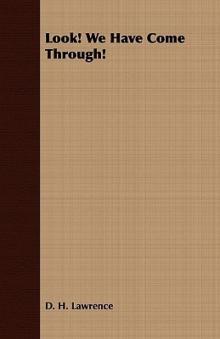 Look! We Have Come Through!
Look! We Have Come Through!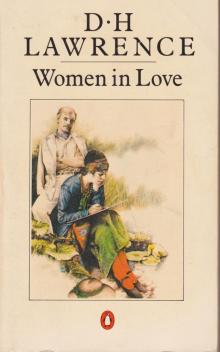 Women in Love
Women in Love The Ladybird
The Ladybird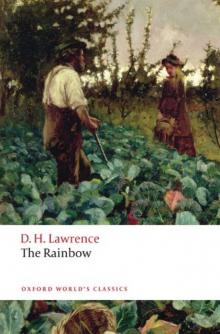 The Rainbow
The Rainbow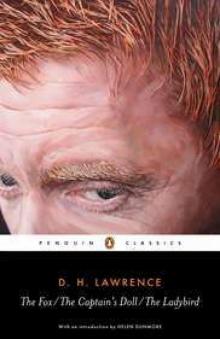 The Captain's Dol
The Captain's Dol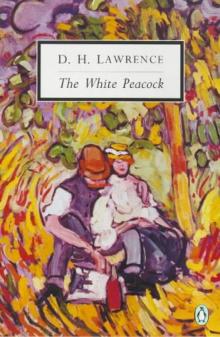 The White Peacock
The White Peacock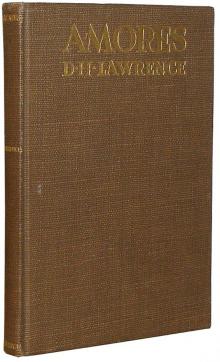 Amores
Amores Lady Chatterley's Lover
Lady Chatterley's Lover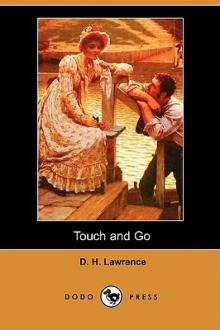 Touch and Go
Touch and Go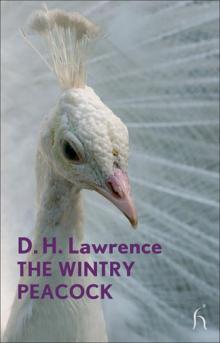 The Wintry Peacock
The Wintry Peacock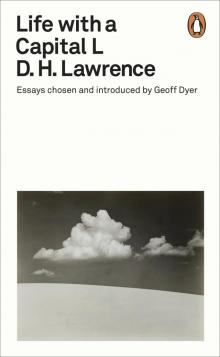 Life with a Capital L
Life with a Capital L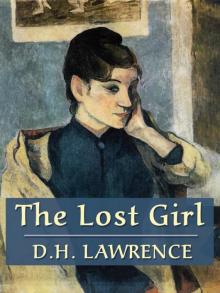 The Lost Girl
The Lost Girl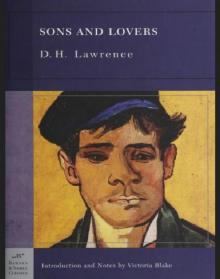 Sons and Lovers
Sons and Lovers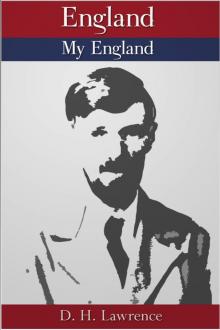 England, My England
England, My England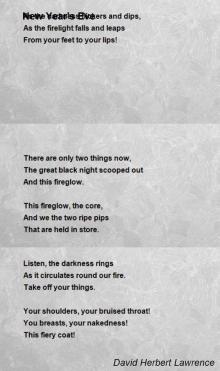 New Poems
New Poems Twilight in Italy
Twilight in Italy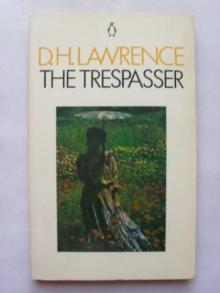 The Trespasser
The Trespasser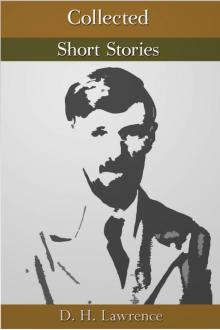 The Collected Short Stories
The Collected Short Stories The First Lady Chatterley's Lover
The First Lady Chatterley's Lover Kangaroo
Kangaroo Bay
Bay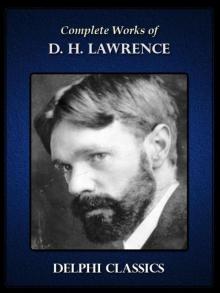 Complete Works of D.H. Lawrence
Complete Works of D.H. Lawrence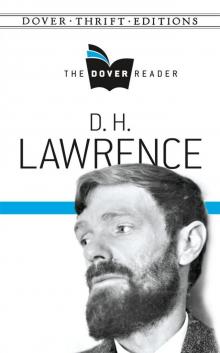 D H Lawrence- The Dover Reader
D H Lawrence- The Dover Reader The Rainbow (100th Anniversary ed.)
The Rainbow (100th Anniversary ed.)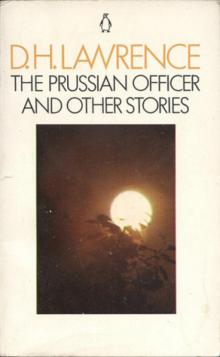 The Prussian Officer
The Prussian Officer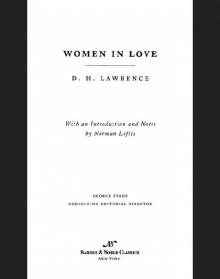 Women in Love (Barnes & Noble Classics Series)
Women in Love (Barnes & Noble Classics Series)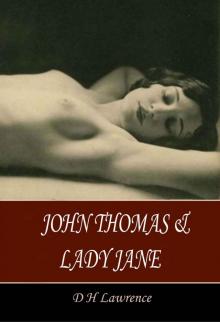 John Thomas and Lady Jane
John Thomas and Lady Jane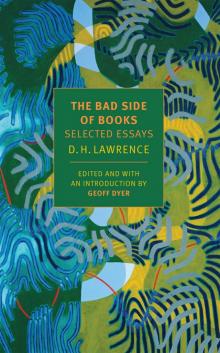 The Bad Side of Books
The Bad Side of Books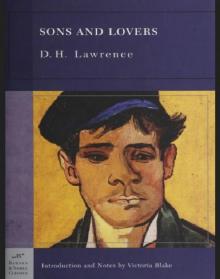 Sons and Lovers (Barnes & Noble Classics Series)
Sons and Lovers (Barnes & Noble Classics Series) Selected Stories
Selected Stories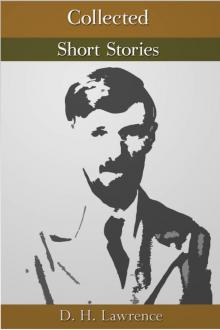 Collected Short Stories
Collected Short Stories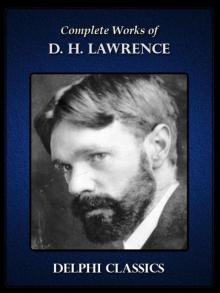 Complete Works of D.H. Lawrence (Illustrated)
Complete Works of D.H. Lawrence (Illustrated)